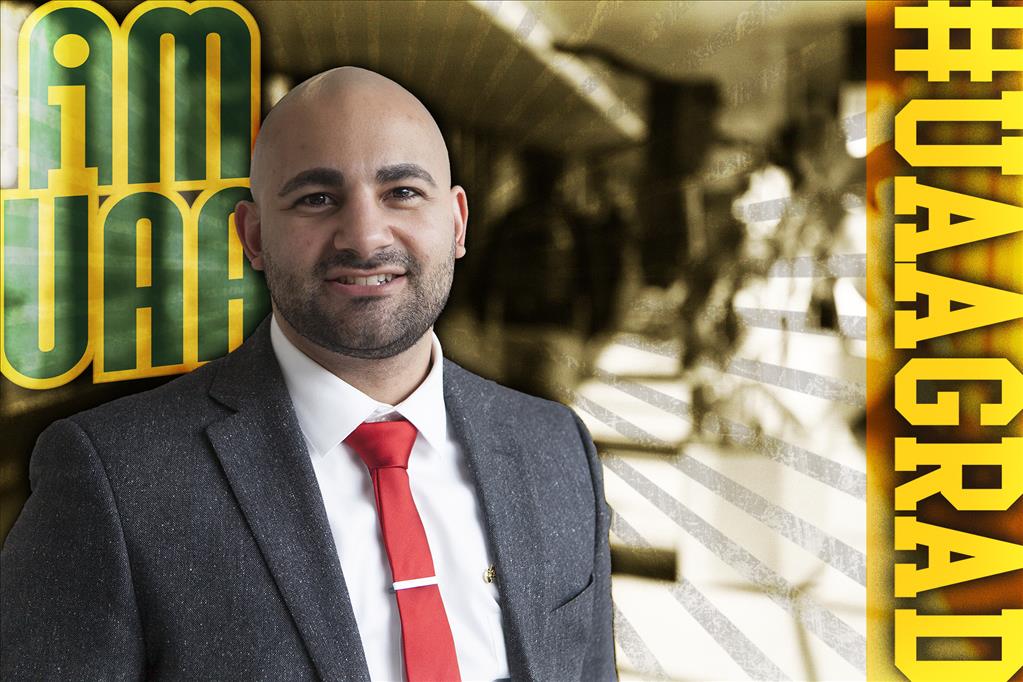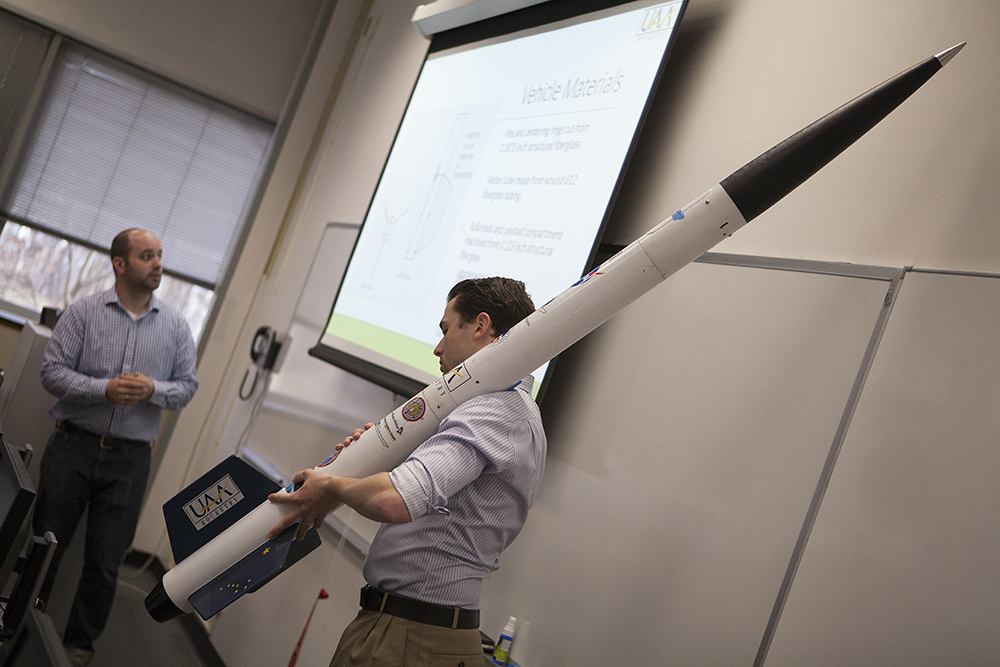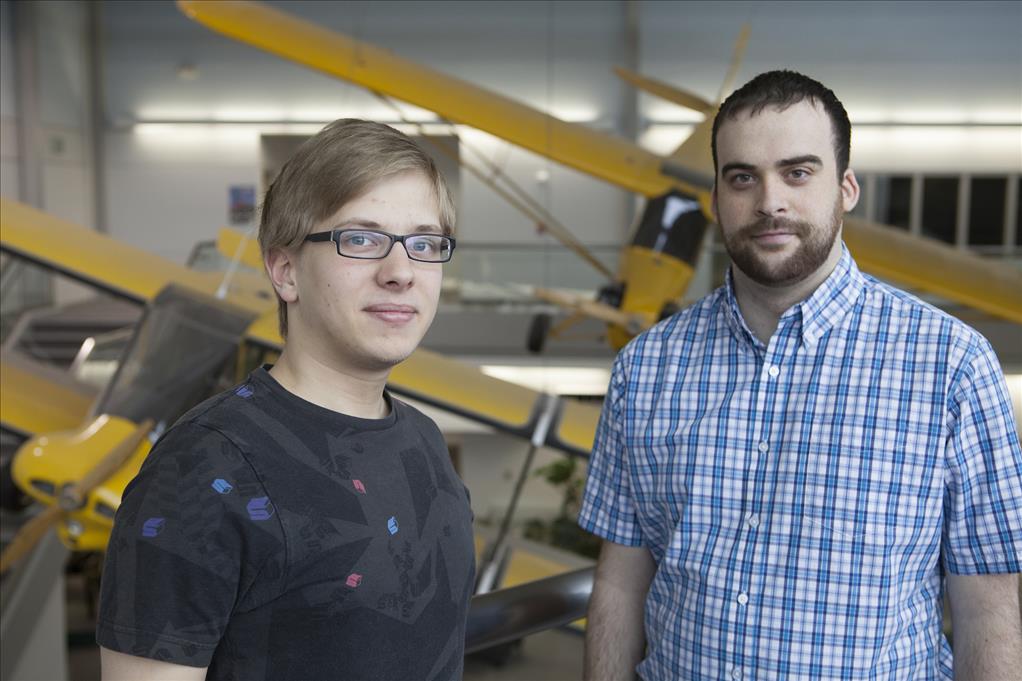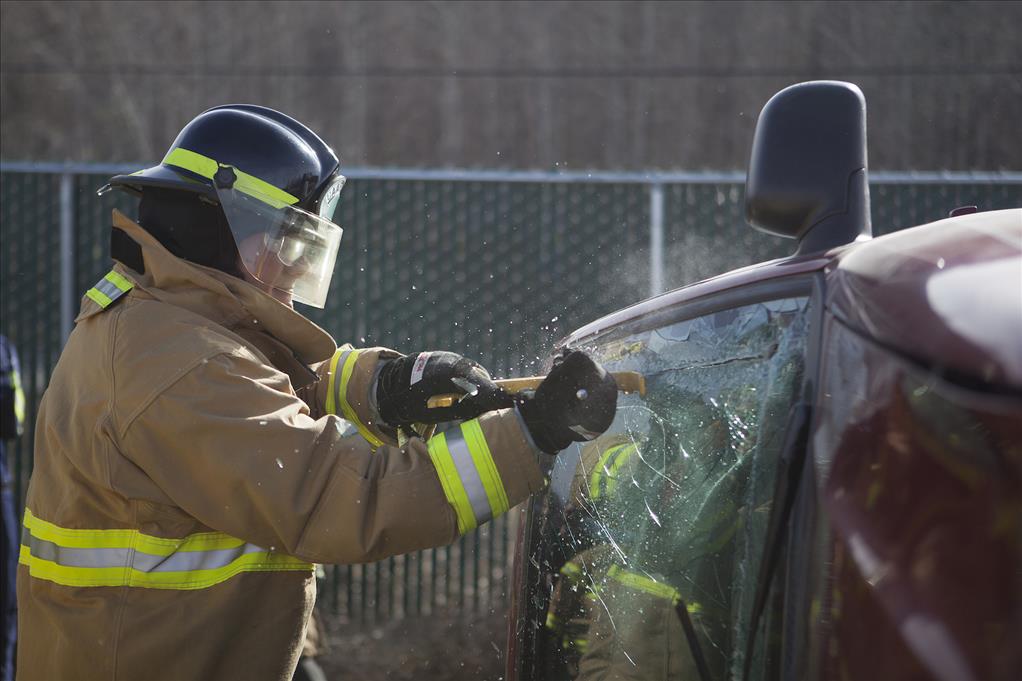Providing 'a safe space' for Alaska Native orators
by Tracy Kalytiak |

Students from UAA, Lower Kuskokwim School District, Kenai Peninsula College and Alaska Christian College participated in the recent Alaska Native Oratory Society event, "Let Your Spirit Speak: Finding Our Voices." (Photo by Dr. Maria Williams)
Life at UAA once felt intimidating for Crystalyn Lemieux. Anchorage was a big place, compared to her coastal hometown of Haines.
She didn't know many people and didn't feel as if she fit in, so three years ago, Lemieux attended the annual Alaska Native Oratory Society event and listened to another student, Maria Crouch, present a poem.
"It was about learning who she is and how healing it was for her," Lemieux, who is Tlingit, recounted. "At the time I was ashamed of being Alaska Native and I knew it was an issue keeping me from being confident. I realized I should be more involved in the Alaska Native community and hopefully I would find my way, or heal like Maria had."
Sharing values
AkNOS convened its most recent event, "Let Your Spirit Speak: Finding Our Voices," on April 11 at UAA's Fine Arts' Recital Hall. Bethel-born storyteller Jack Dalton served as master of ceremonies; UAA Provost Samuel Gingerich, Dr. Maria Shaa Tlaa Williams and UAA Native Studies instructor Shirley Kendall welcomed the students and Tlingit-Inupiaq storyteller Ishmael Angaluuk Hope delivered the keynote speech.
Williams, director of UAA's Alaska Native Studies program, has coordinated the noncompetitive AkNOS event since 2012; it originally launched as a competitive event in 2002. Donors included Aleut Corp., Afognak Corp. and UAA faculty who made individual donations: Williams, Assistant Professor Sharon Lind, Managing and Marketing, and English Professor Jeane Breinig.
Students not only from UAA but from Kenai Peninsula College, Alaska Christian College, Amaqigciq Caputnguaq Schools and Lower Kuskokwim School District participated this year, giving a total of 15 presentations, Williams said. Speech categories include poetry, elder teachings, music, declamatory speech, rap/spoken word, new media (such as apps that help teach the Sugt'stun and Yupik languages), humor, real-life stories and Alaska Native language.
"AkNOS offers a platform for Alaska Native students to share stories, songs and address issues that are meaningful to them," the event's program states. "It is a sharing and learning gathering that is based on Alaska Native community values. It provides an opportunity for students to develop their skills in oratory in a supportive environment."
Growing speaking skills
Kelsy Panruk, of Amaqigciq Caputnguaq Schools, delivered in Yupik a story written by George Kanrilak of Tununak.
"One of them approached him and said that the Etolin Strait was rough and stormy and that it wasn't a good idea to go and told him to go when the weather calmed down," a translated-to-English excerpt of the story stated. "But that one said he had heard how stormy the Etolin Strait was. Since the wind wasn't very strong, he said he wasn't very worried about it. And so the person who warned him left him, realizing he was the type that paid no heed. So then he left for the inland. When he left he had an accident down there on Etolin Strait and he never set foot on land again."
Other participants in the AkNOS event included Arlo Nasruk Davis of Selawik; Ivana Ash of Nanwalek; Timotheen Charles of Kasigluk; Theodore Matthew Edwards III of Holy Cross; Jawn Card of the Lower Kuskokwim School District; Marvin Kiokun of Mekoryuk; Vincent Gregory of Kalskag; Mary Sherbick of Twin Hills; Robyn Erik of Chefornak; George Holly of Holy Cross; Nikki Sugar and Lewis Martin of Lower Kuskokwim School District and Kera Nicholas of Kasigluk.
Why is it important for Alaska Native students to participate in AkNOS?
"It's not academic, right? It's not a research thing," Williams said. "What I find so fascinating...it was very clear to me that this type of sharing that's happening, the students are really sharing things with themselves-whether it's real-life stories or humor or maybe they're relaying a speech in a Native language-they're getting up there and they're speaking. They're some type of connection...it takes on its own energy and its own life and moves forward. It's very affirming of the students in terms of their identity, in terms of being confident in their nativeness."
A healing experience
Lemieux's first year, she participated in the AkNOS event because she was working as a student intern at the Alaska Native Studies office. The second year, she shared her experience working as an intern with First Alaskans Institute.
"And now this year, I seemed more confident and calm," she said. "It was more of a healing experience this year. I'm hoping more students become aware of what is going on so they, too, can begin to speak up more about social issues, or continue to participate and get to meet one another... getting to know one another on a different level instead of just at school or only knowing one another's names.
"I can't wait to see where I will speak in the future," Lemieux said. "When it becomes important, I will have already been through some of the awkwardness of public speaking. I'm glad AkNOS allowed a safe space for me to practice."
Written by Tracy Kalytiak, UAA Office of University Advancement. A story about this event appeared in the Alaska Dispatch News on April 11, 2015.
 "Providing 'a safe space' for Alaska Native orators" is licensed under a Creative Commons Attribution-NonCommercial 4.0 International License.
"Providing 'a safe space' for Alaska Native orators" is licensed under a Creative Commons Attribution-NonCommercial 4.0 International License.














